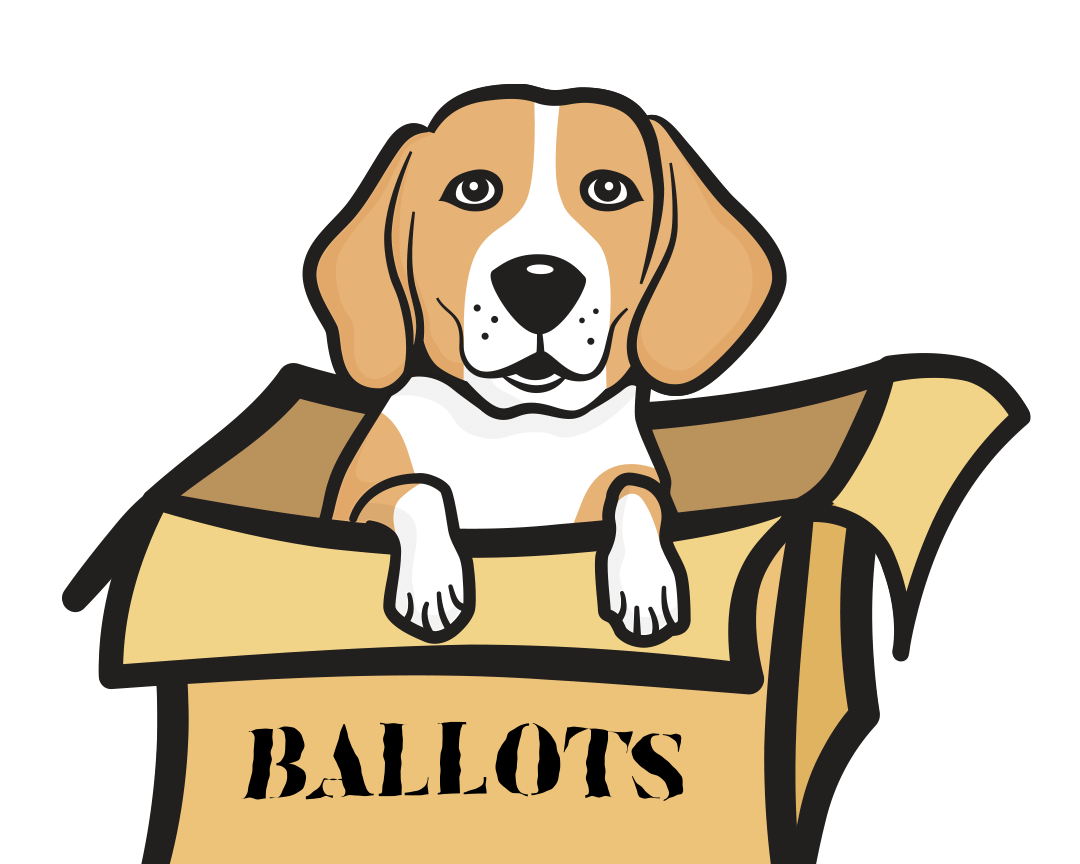The Davis-Stirling Act

California HOA elections are governed by the Davis-Stirling Act (California Civil Code Sections 5100-5200). The Davis-Stirling Act is routinely amended by the California legislature, which means that the rules governing California HOA election laws are constantly evolving. Contact us to ensure your next election complies with the latest rules and regulations.
Davis-Stirling Act Statutes Regarding HOA Elections
| Civil Code § 5100 Elections that Require Secret Balloting | Brief Description: This Davis-Stirling Act statute describes the types of HOA elections that must be conducted by secret ballot. Full Statute |
| Civil Code § 5103 Election by Acclamation; Term Limits | Brief Description: This Davis Stirling Act statute describes the criteria that must be met in order for election by acclamation to take place. It also allows HOAs to establish term limits for board directors. Full Statute |
| Civil Code § 5105 Election Rules | Brief Description: This Davis-Stirling Act statute states that all HOAs must have Election Rules and it lists what the Election Rules must contain. It states that board candidates must be members of the HOA and it lists the limited criteria that can be used to disqualify candidates. It states that Election Rules cannot be changed fewer than 90 days before an election. Full Statute |
| Civil Code § 5110 Inspectors of Election | Brief Description: This Davis Stirling Act statute describes what it means to be an “independent third party” and lists the duties of the Inspector of Elections. Full Statute |
| Civil Code § 5115 Voting Procedure | Brief Description: This Davis-Stirling Act statute describes the required timeline and notices for secret ballot elections and describes the two-envelope system. It also provides the option for a 20% reduced quorum at adjourned meetings. Full Statute |
| Civil Code § 5120 Counting Ballots; Irrevocable | Brief Description: This Davis Stirling Act statute states that owners must be allowed to observe the ballot-counting and that election results must be delivered to owners within 15 days. It also states that ballots are irrevocable once cast. Full Statute |
| Civil Code § 5125 Custody of Election Materials | Brief Description: This Davis Stirling Act statute states that the Inspector of Elections must retain the election materials for one year after the election. During that time, owners may request in writing to inspect the ballots. Full Statute |
| Civil Code § 5130 Proxies | Brief Description: This Davis Stirling Act statute provides information on the required content of proxies, if they are allowed by the HOA bylaws. Full Statute |
| Civil Code § 5135 Association Funds in Campaigns | Brief Description: This Davis Stirling Act statute states that HOA funds may not be used for campaign purposes. Full Statute |
| Civil Code § 5145 Judicial Enforcement of Election Procedures | Brief Description: This Davis Stirling Act statute states that owners have one year to challenge election results in court. Full Statute |
| Civil Code § 5200 Association Records and Enhanced Records | Brief Description: This Davis Stirling Act statute defines election materials to include ballots, signed voter envelopes, the voter list, proxies, and the candidate list. It states that signed voter envelopes may not be copied, and that election materials must be preserved for one year after the election. Full Statute |
Recent Changes to the Davis-Stirling Act
- Election by Acclamation (AB 502). All California HOAs are eligible for Election by Acclamation, regardless of what their governing documents say. Election by Acclamation is an option if (1) the number of candidates is less than or equal to the number of seats up for election, (2) the nomination period was 90 days long, (3) a Nomination Reminder notice was given to all homeowners 7-30 days before the close of nominations, and (4) the HOA held an election with ballots at least once in the past four years.
- Limitations on Rental Restrictions (AB 1584): HOAs must update their CC&Rs to conform to new rules on rental restrictions by July 1, 2022. However, HOAs can do so without a membership vote, as long as they follow the same procedures as for a rulemaking (i.e. the board votes after a 28-day notice and comment period for owners).
- Term Limits (AB 432): HOAs may subject their board members to term limits.
- Independent Third-Party Inspector of Elections (SB 323): HOAs are required to use an independent third-party to receive and tabulate ballots for all secret ballot elections. An independent third-party may not be “a director or a candidate for director or be related to a director or to a candidate for director,” or “a person, business entity, or subdivision of a business entity who is currently employed or under contract to the association for any compensable services other than serving as an inspector of elections.”
- Election Process Overhaul (SB 323): SB 323, which went into effect in January 2020, constituted a major overhaul of the rules governing HOA elections. SB 323 required all California HOAs to adopt new election rules that conformed to the Davis-Stirling Act. A major feature of SB 323 was the requirement that board elections take a minimum of approximately 105 days from start to finish due to 3 required mailings, each approximately 30 days apart: Call for Nominations, Pre-Ballot Notice and Ballot package.
Frequently Asked Questions About the Davis-Stirling Act
Is the Davis-Stirling Act a law?
Yes, the Davis-Stirling Act is a set of California laws that regulates common interest developments such as condominiums, planned developments, and stock cooperatives. The act is officially known as the “Davis-Stirling Common Interest Development Act,” and it is codified in the California Civil Code, starting with Section 4000. The act sets out the legal framework for the management and operation of common interest developments, and it regulates a wide range of topics, including governance, elections, meetings, assessments, maintenance, and enforcement.
Is the Davis-Stirling Act a federal law?
No, the Davis-Stirling Act is not a federal law. It is only applicable in California.
Who does the Davis-Stirling Act apply to?
Who enforces the Davis-Stirling Act?
The Davis-Stirling Act is enforced by various entities, depending on the nature of the violation:
-
Homeowners Associations (HOAs): HOAs are typically responsible for enforcing the provisions of the Davis-Stirling Act within their communities. This includes holding meetings, electing directors, collecting assessments, and maintaining common areas.
-
Department of Real Estate (DRE): The DRE is responsible for enforcing certain provisions of the Davis-Stirling Act related to the regulation of common interest developments, such as the registration of HOAs and the regulation of common interest developments.
-
California courts: The courts have the authority to enforce the Davis-Stirling Act and resolve disputes between common interest developments, HOAs, and individual members.
-
California Bureau of Real Estate (BRE): The BRE is responsible for licensing and regulating real estate professionals, such as brokers and salespersons, who are involved in common interest developments. The BRE can investigate and discipline licensed professionals who violate the Davis-Stirling Act.
It’s important to note that individual members of a common interest development can also bring a legal action to enforce their rights under the Davis-Stirling Act.
What happens when boards violate the Davis-Stirling Act?
When boards violate the Davis-Stirling Act, the consequences may vary depending on the nature and severity of the violation. Here are some possible consequences:
-
Legal action: Members of a common interest development can bring a legal action to enforce their rights under the Davis-Stirling Act. This may involve seeking injunctive relief, damages, or other remedies.
-
Fines and penalties: The Davis-Stirling Act allows for fines and penalties to be imposed on HOAs and their agents for certain violations. For example, an HOA board may be fined up to $500 per day for failing to provide certain disclosures to members.
-
Removal of board members: The Davis-Stirling Act allows for the removal of board members who violate the act or fail to carry out their duties. This may involve a recall election, a court order, or other procedures.
-
Loss of insurance coverage: If an HOA board violates the Davis-Stirling Act, the HOA’s insurance coverage may be affected. Insurance companies may deny coverage or increase premiums if the board’s actions create liability risks.
-
Other consequences: Depending on the specific violation, other consequences may include reputational harm, loss of member trust, or decreased property values.
It’s important to note that the specific consequences of an HOA board violating the Davis-Stirling Act will depend on the facts and circumstances of each case, and may involve a combination of the above measures.

